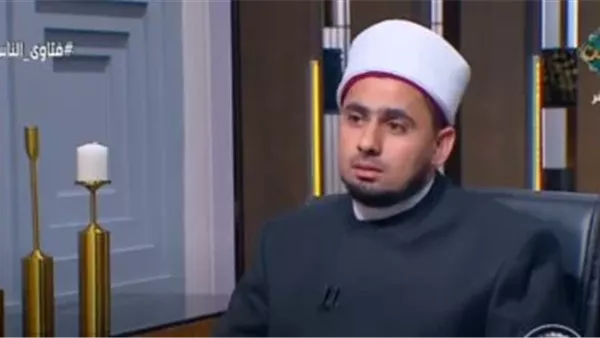
Wednesday 11/December/2024 – 07:27 PM
Sheikh Ali Qeshta, Secretary of Fatwa at the Egyptian Fatwa House, responded to the question of a woman named Shaima regarding her husband, who died after suffering from a brain tumor, and had obtained a loan. So, is there any blame on her or her husband if the bank drops this loan after his death?
My husband died while he was sick and had a loan? The Fatwa Secretary explains the Sharia ruling
The Fatwa Secretary at the Egyptian Fatwa House confirmed, during television statements: There is no burden on her husband, God willing, and he will not be held accountable for the loan that was forgiven after his death, as this is a command from God Almighty, and he will be pardoned, and he will not be held accountable for that, God willing.
He added: The bank may facilitate procedures for the customer in certain cases, but it is important to be clear in separating matters. Meaning that the loan that is dropped after death is not considered a debt that must be borne, but rather a matter related to a settlement between the client and the bank, and therefore neither the woman nor her husband bears any guilt in this.
He referred to the noble Prophetic hadith, when he said: Our Prophet, may God’s prayers and peace be upon him, says: For one of you to walk with his brother to fulfill his need is better for him than for him to seclude himself in the mosque for two months. If the husband has endeavored to fulfill the people’s needs, he will receive a reward for his intention. And perhaps he will have good deeds in the afterlife.
Sheikh Ali Qeshta stressed the need to strictly adhere to banking procedures, especially with regard to financial rights and duties, to ensure that rights are not lost and that no harm is caused to anyone.
Fatwa Secretary: It is not permissible to take back the gift or gift after giving it
Meanwhile, Sheikh Ali Qeshta, Secretary of Fatwa at the Egyptian Fatwa House, confirmed that retracting a gift after giving it is considered impermissible in Islam, explaining: The gift or present is given with the aim of improving relations and showing love, and not to cause problems or disputes, and therefore it is better not to retract it. The gift after it has been given.
The Fatwa Secretary at the Egyptian Fatwa House explained that there are cases in which it is not permissible to retract the gift, such as: if the gift has increased or developed, as in the case of a person who gives another a small animal, and then it increases in size and becomes of a higher value, then it is not permissible to retract the gift. In this case.
He pointed out that returning the gift after any increase in it reflects inappropriate behavior, and one of the things that Islam seeks to avoid is returning the gift between the spouses. If the husband gives his wife a gift, after a period of time he is not permitted to demand that she return this gift, until If a dispute occurs between them, this also includes gifts between family members, and if a person gives a gift to his brother or sister, he may not take back this gift for any reason.
He added: Even if the gift has been damaged or destroyed, as in the case of gifts that may be damaged, it is not permissible to take it back, but if the financial circumstances change significantly, the parties involved can agree to compensate for the gift.
Can’t I fulfill the vow? The Fatwa Secretary answers
Meanwhile, Sheikh Ali Qeshta, Secretary of Fatwa at the Egyptian Fatwa House, answered the question of a woman named “Nima” who had vowed to slaughter a sheep if God cured her of cancer, and is now facing difficulty in fulfilling this vow due to the lack of financial capabilities?
The Fatwa Secretary at the Egyptian Fatwa House explained: The need is a blessing. A thousand blessings upon you. I ask God to heal you and grant you good health and well-being. Regarding the vow, since the circumstances now do not allow you to fulfill it, you can pay expiation for an oath… expiation is by feeding 10 poor people, or By giving an amount equivalent to 300 pounds, or if you are unable to do that, you can fast for three days.. This fulfills the oath vow that you were unable to fulfill.



